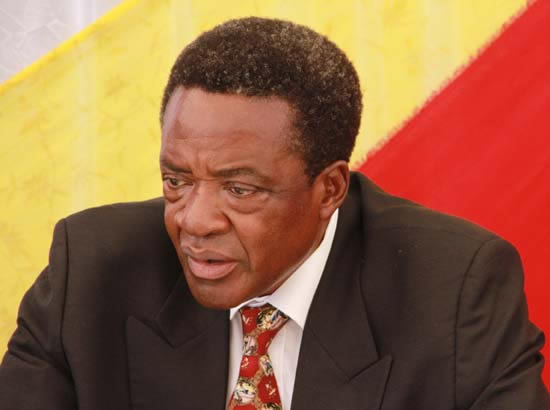Jane Ngwenya: A woman married to politics

Prosper Ndlovu
SHE was labelled a rabble-rouser and a no-nonsense woman because of her strong political convictions. Her husband also felt threatened by her involvement in politics and eventually deserted her. She was one of the few women to be involved in politics at the top level and was arrested and detained for long periods for that. She was a great, at the same time, reluctant teacher who took Zanu-PF Politburo member and Minister of ICT and Postal and Courier Services, Cde Webster Shamu (now 68) through his first stages of formal education, Sub A and B.
This is the story of Cde Jane Lungile Ngwenya (78) who, despite advanced age and ill-health, has no regrets about losing everything she had as long as she remained loyal to the revolution.
Recounting her experiences during a recent visit to Gonakudzingwa Detention Camp in Chiredzi, the outspoken former Deputy Minister of Labour, Manpower Planning and Social Welfare, who now lives in Bulawayo’s Coronation Old People’s Home, said she was pained that today’s generation lacks identity and pride in their country’s sovereignty.
“I do not have a degree like you but I know who I am. I joined the liberation struggle as a teenager because of the brutality that white settlers inflicted on black people.
“During that time a lot of people feared whites and no one would dare challenge their oppression and that made me angry,” said Cde Ngwenya, a former PF-Zapu central committee member.
“This pushed me into politics and I was arrested and detained several times on accusations of being a rabble-rouser and for ‘inciting’ other people to revolt against the whites.”
Cde Ngwenya recalled how her husband (name withheld) became impatient with her involvement in politics in the early 1950s and eventually the pair parted ways over the issue.
“My husband was not happy with my involvement in politics because on several occasions the Rhodesian police came to our home looking for me. He always complained about that ethi ngumfazi onjani otshona edingwa ngamapholisa? (what kind of wife is always wanted by the police?),” she said.
“Eventually wangala lubaba (he divorced me). However, I was not deterred. I resolved to be married to what I believed because I was angered by the brutality of the whites who had beaten my grandparents. I then remained without a man, ngiyisaliwakazi (divorcee)because of that.”
Since then Cde Ngwenya never remarried.
She said her political career was spurred by inspiration from founding nationalists such as the late Vice-President Joshua Nkomo, Benjamin Burombo, Joseph Msika and Josiah Chinamano as well as President Mugabe,.
For Cde Ngwenya, it was not easy to break the barriers as a woman and take a lead in nationalist politics.
“I was suspended from school while doing Standard Six for posing what was termed a “cheeky” question during a Bible knowledge lesson. I later on became a teacher but quit the profession after refusing to make contribution of money to buy flowers for a visiting white man’s wife,” she said.
“By then teachers were used to brainwash African children. I then joined full time politics at the formation of NDP in 1960 where I was the only woman elected into the 65 member national executive although the party was later banned.”
In the early 1960s Cde Ngwenya served detention at Grey Street Prison, now Bulawayo Prison, and WhaWha detention camp in Gweru before being taken to Gonakudzingwa where she met several nationalists who were also incarcerated at the camp.
She urged the youth to defend the gains of the liberation struggle and applauded President Mugabe for being a role model of true African leadership.
“Who is a leader like President Mugabe in Africa today? He is a fearless person and that is what our youths should emulate. This is your country, be proud of it. Avoid being used like dogs to destroy your own country.
“Politics is not about speaking good English, which you brag about. The white people do not like you,” said Cde Ngwenya.
“Young people should stop going to the Diaspora and develop their own country.
“Why do you like working for other people at the expense of your own country? I refused a scholarship to Canada during the struggle because I could not pursue personal benefit when my country was suffering.”
Cde Ngwenya said although she had lost everything she worked for during her lifetime, she was happy that she contributed to the liberation of the country and its development after independence.
“I had three children, Emmanuel, Elizabeth and Shingirai. Two of them have passed away and I am left with Shingirai. All the investment I made was wiped away during inflation in the past years. I also sold all the property I had to finance the education of my children.
“I am now living at an old people’s home and I am not complaining. In fact I am proud that I lived a productive life. During my time as a teacher, I taught Webster Shamu Sub A and B,” said Cde Ngwenya.








Comments